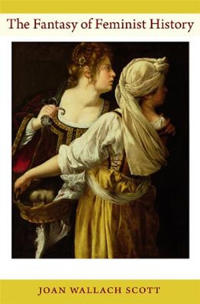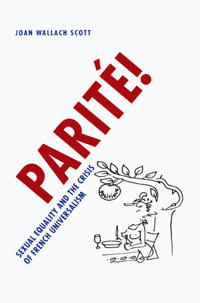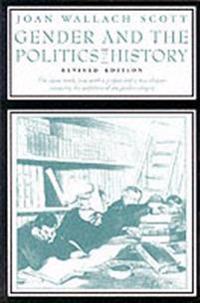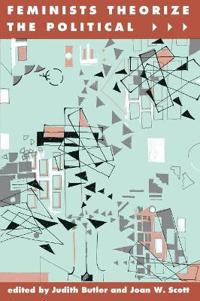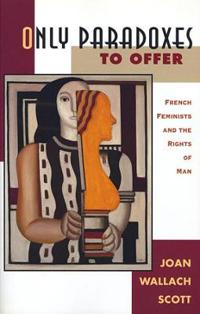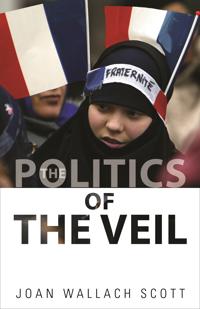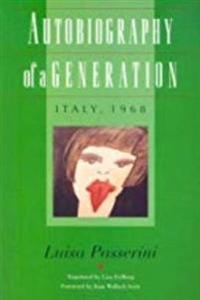The Fantasy of Feminist History (Häftad)
avJoan Scott
ISBN: 9780822351252 - UTGIVEN: 201201In The Fantasy of Feminist History, Joan Wallach Scott argues that feminist perspectives on history are enriched by psychoanalytic concepts, particularly fantasy. Tracing the evolution of her thinking about gender over the course of her career, the pioneering historian explains how her search for wa[...]
Beauty Therapy: The Foundations - The Official Guide To Level 2 Lecturer's Resource Pack (Övrig)
avJoan Scott, Andrea Harrison
ISBN: 9781844800414 - UTGIVEN: 2004-12-02Contains supplementary material to support lecturers in the delivery and assessment of all mandatory and optional units for level 2 Beauty Therapy.[...]
Spa (Pocket)
avJoan Scott, Andrea Harrison
ISBN: 9781844803125 - UTGIVEN: 2006-05-25A guide to the spa treatments and the information you need to know to succeed in this industry. It includes learning features that help fine-tune your learning, while the Habia endorsed content gives you an introduction to the world of spa therapy.[...]
Beauty Therapy: The Foundations - The Official Guide To Level 2 Lecturer's Resource Pack (Övrig)
avJoan Scott, Andrea Harrison, Lorraine Nordmann
ISBN: 9781844807079 - UTGIVEN: 2007-09-14Professional Beauty Therapy (Övrig)
avJoan Scott, Andrea Harrison, Lorraine Nordmann
ISBN: 9781844807086 - UTGIVEN: 2007-09-28My Life, Deleted: A Memoir (Häftad)
avScott Bolzan, Joan Bolzan, Caitlin Rother
ISBN: 9780062025487 - UTGIVEN: 201210On December 17, 2008, 46-year-old Scott Bolzan hit his head on the bathroom floor and awoke in a hospital with no memory of who he was or how he got there. He didn't know that the petite blond at his side was Joan, his wife of twenty-four years--or even what a wife was. He couldn't remember the birt[...]
Parite! (Pocket)
avJoan Wallach Scott
ISBN: 9780226741086 - UTGIVEN: 2005-12France today is in the throes of a crisis about whether to represent social differences within its political system and, if so, how. It is a crisis defined by the rhetoric of a universalism that takes the abstract individual to be the representative not only of citizens but also of the nation. In "P[...]
Gender and the Politics of History (Häftad)
avJoan W. Scott
ISBN: 9780231118576 - UTGIVEN: 199911Winner, in the original edition, of the 1989 Joan Kelly Prize of the American Historical Association, this landmark work from a renowned feminist historian is a trenchant critique of women's history and gender inequality. Exploring topics ranging from language and gender to the politics of work and [...]
Feminists Theorize the Political (Häftad)
avJudith P. Butler, Joan W. Scott
ISBN: 9780415902748 - UTGIVEN: 199209The use of theory' in feminist analysis has been said to threaten feminism as a political force. This collection of work by leading feminist scholars engages with the question of the political status of poststructuralist theory within feminism. Against the view that poststructuralism necessarily we[...]
Only Paradoxes to Offer (Häftad)
avJoan W. Scott
ISBN: 9780674639317 - UTGIVEN: 199708When feminists argued for political rights in the context of liberal democracy they faced an impossible choice. On the one hand, they insisted that the differences between men and women were irrelevant for citizenship. On the other hand, by acting on behalf of women, they introduced the very idea of[...]
The Politics of the Veil (Häftad)
avJoan Wallach Scott
ISBN: 9780691147987 - UTGIVEN: 201008In 2004, the French government instituted a ban on the wearing of 'conspicuous signs' of religious affiliation in public schools. Though the ban applies to everyone, it is aimed at Muslim girls wearing headscarves. Proponents of the law insist it upholds France's values of secular liberalism and reg[...]
Autobiography of a Generation: Italy, 1968 (Häftad)
avLuisa Passerini, Joan Wallach Scott
ISBN: 9780819563026 - UTGIVEN: 1996-10Slöjans politik (Kartonnage)
avJoan Wallach Scott
ISBN: 9789186273088 - UTGIVEN: 201006År 2004 antogs i Frankrike en lag som förbjuder elever att bära ?iögonfallande tecken? på religiös tillhörighet i allmänna skolor. Även om lagen gäller alla religiösa grupper, är den i första hand riktad mot muslimska flickor som bär huvudduk. Lagens anhängare betraktar slöjan som en[...]
Bang 4/2011 : Det gudlösa numret (Tidskrift)
avJoan Wallach Scott, Naiti del Sante, Jenny Jägerfeld, Roland Paulsen, Cecilia Köljing
ISBN: 9789198000702 - UTGIVEN: 201111Det gudlösa numret av Bang synar det sekulära och villkoren för det. Inga tomtenissar i sikte, men en bön till Berlusconi. Vi bjuder bland annat på juristen Naiti del Santes uppmärksammade och avslöjande berättelse om hur DO hanterade niqabfallet.
Hur ser sambandet ut mellan seku[...]

